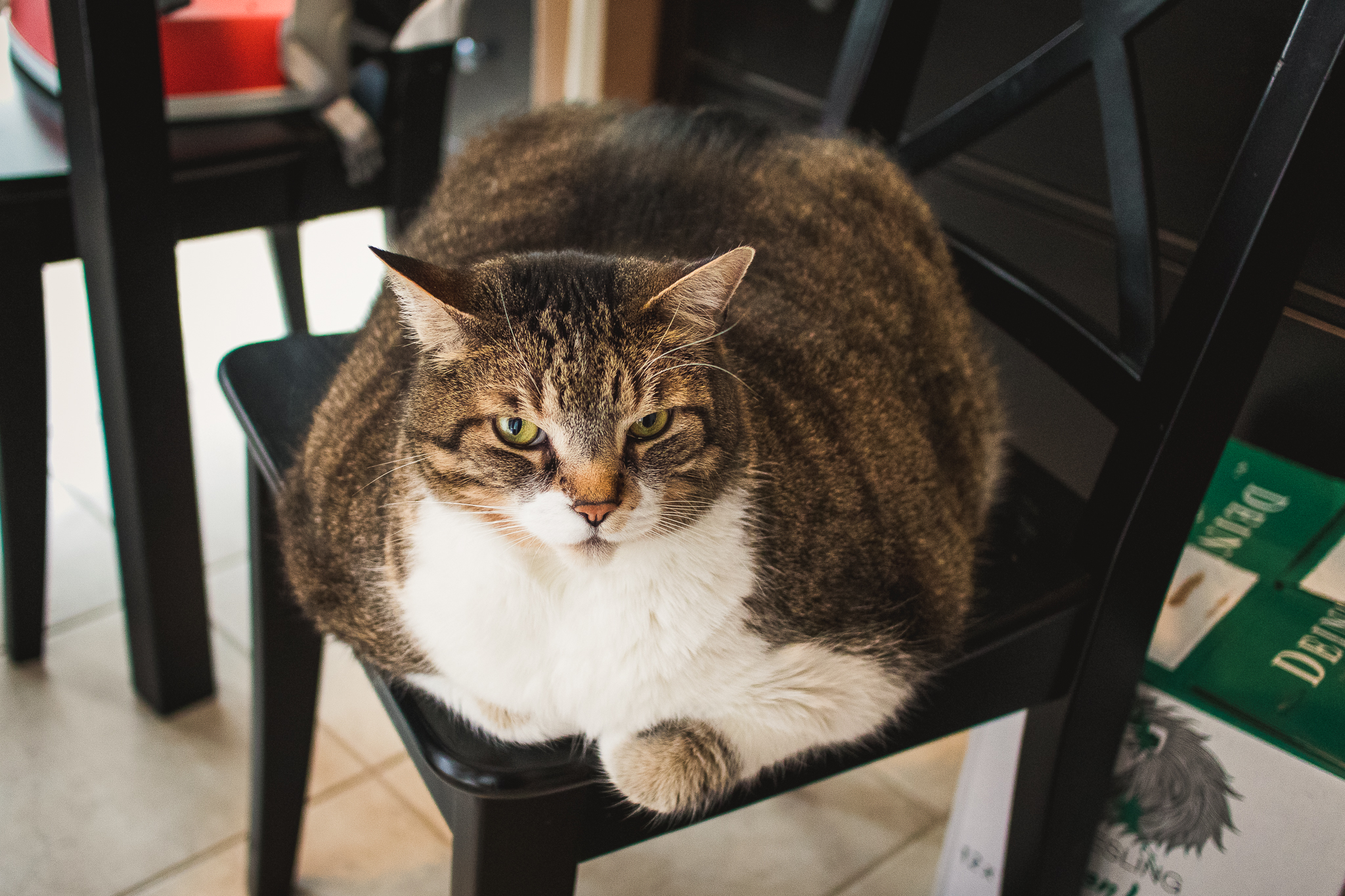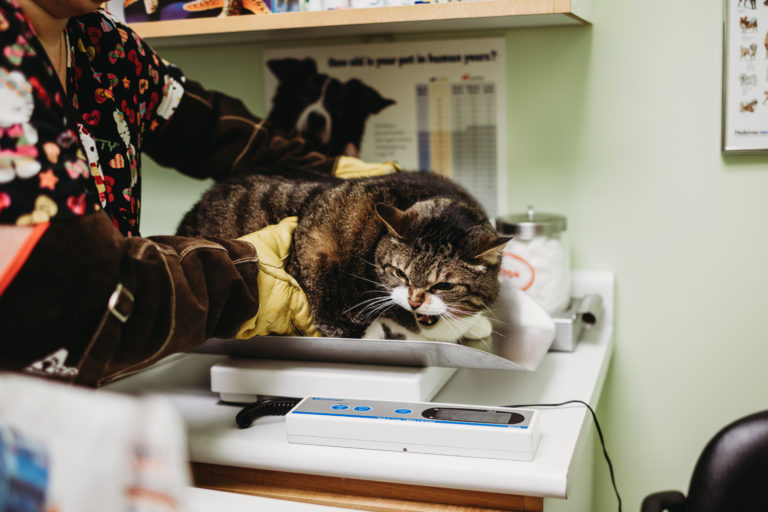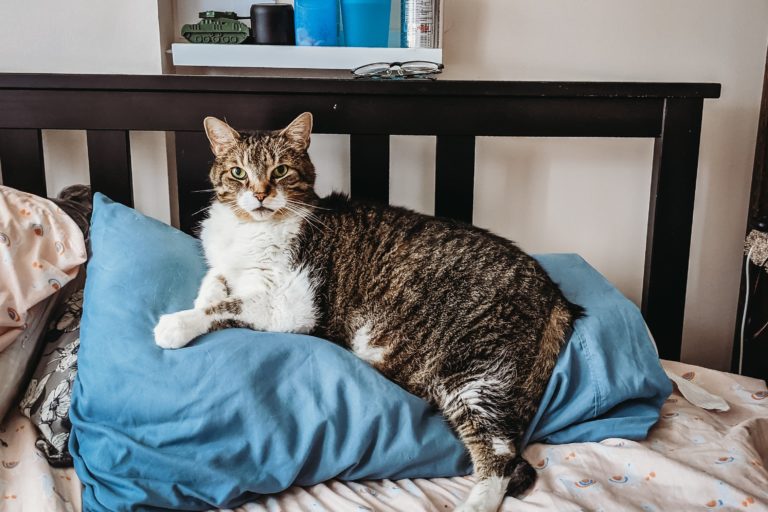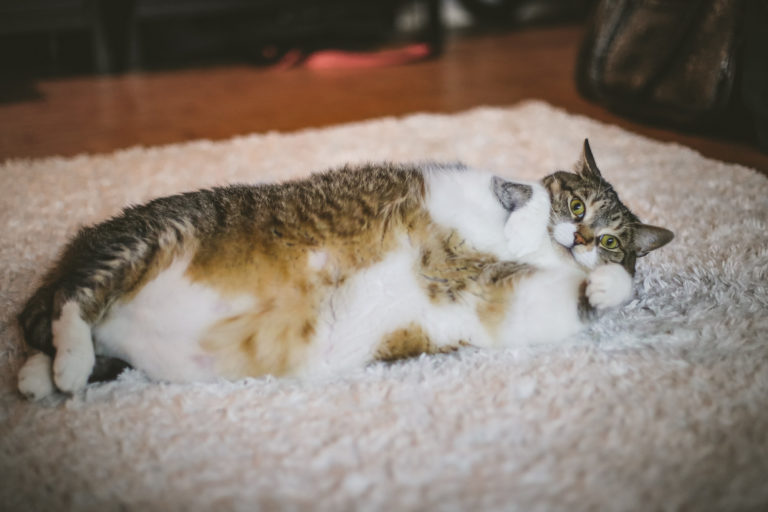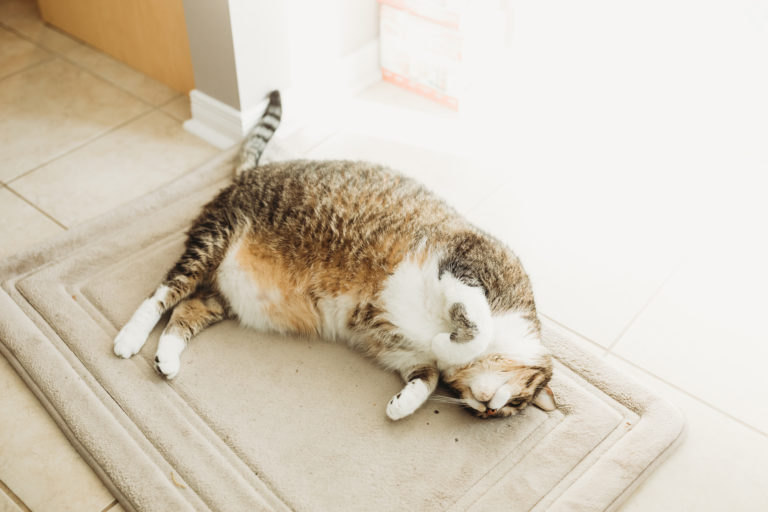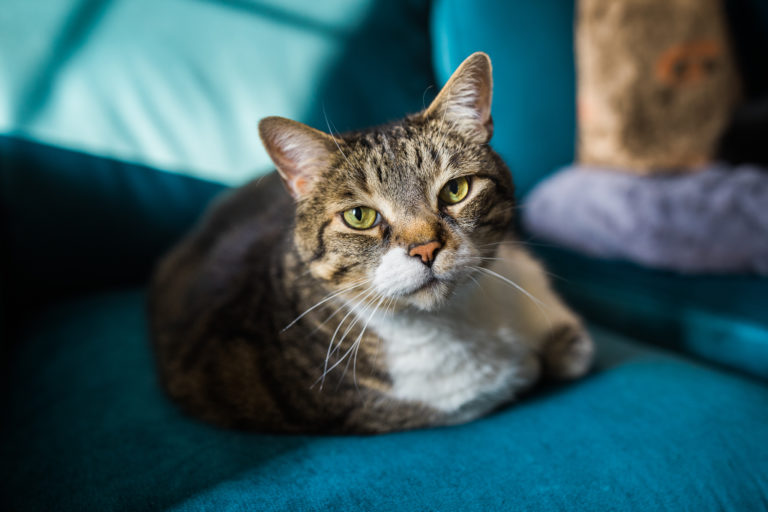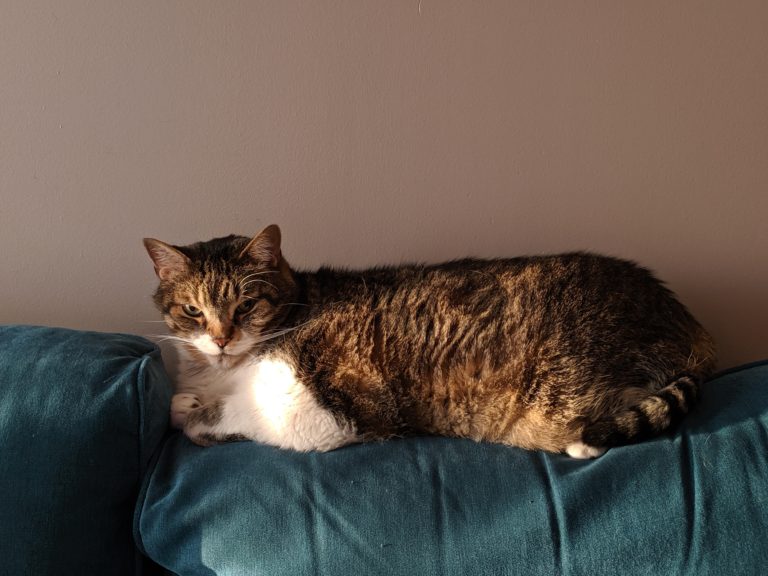How Fast Can Cats Lose Weight
How fast can cats lose weight? This is a very common question when pet owners are faced with putting their pets on diets and one that I asked when Herc started his weightloss journey. I wanted to know how long a strict period of dieting would take because I immediately anticipated that the process would be cumbersome and difficult for us. Not only did I find out that putting your cat on a diet is not nearly as intrusive in your life as I thought it would be, I also learned that we were going to be in this for the long haul. Dieting a cat can take months – sometimes longer.
How Fast Can Cats Lose Weight
So we know that it won’t be a quick process – but exactly how fast can cats lose weight? In theory, cats should only lose no more 0.5%-2% of their body weight per week if they want to lose weight safely. This is achievable for the majority of cats… in theory.
Why Should Cats Lose Weight Slowly?
While the concept of dieting is the same for all species (calories in vs calories out) every species handles the process differently. For humans, when we are in a calorie deficit, our body will find energy from the fat we have stored inside of us. The less calories we’re eating, the more our body will pull from our own fat for fuel. That fat gets broken down into usable fuel and is used to power our bodies. If you end up not needing as much fuel as your body has already broken down for you then your liver will break it down and it will become a part of your waste product.
Cats, on the other hand, are quite different. Their livers are not nearly as efficient as humans. This means that if a cat isn’t eating enough and its body is pulling too much fat from storage then their livers won’t be able to break it down fast enough. This can lead to fatty build-ups in and around the liver and a potentially life-threatening condition called hepatic lipidosis.
This is why cats should be taking a “slow and steady” approach to weight loss that is guided by their vet or vet tech team.
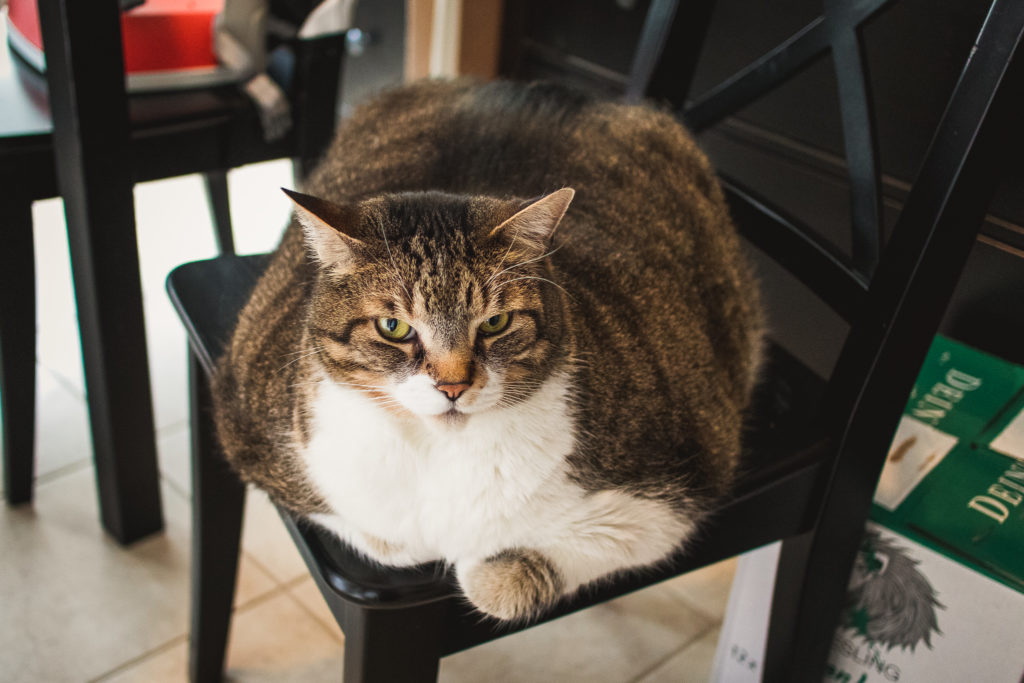
How Fast did Hercules Lose Weight?
Hercules was the epitome of ‘slow and steady’, both in spirit and in his diet results.
Herc lost a significant amount of weight and he did it twice. The first time was in 2016/2017 and then again in 2019/2021. Each time he lost just over 7 pounds or roughly 25% of his body weight.
Herc re-gained the weight he lost the first time as he fought to heal after a nasty battle with pancreatitis. We would rather have a fat cat that could lose the weight again than a slimmer cat who would succumb to the effects of pancreatitis. We did what we had to do to get him through that horrible pancreatitis attack and he lost the weight again after he healed!
The first time Hercules lost the weight, he lost it at a rate between 0.5%-1% loss per week. Not great but not terrible.
He didn’t get a chance to hit his goal weight the first time as there were some complications with food changes and the pancreatitis. Bumps in the road will happen, unfortunately, and they certainly do not mean that you’re a failure! How you deal with those bumps is what matters.
Had Hercules not had any bumps in the road, at the rate he was losing the first time around, it would have taken him ~21.5 months to hit his goal weight of 17 pounds.
His goal weight was always hard to determine because he was just SO big, but initially we figured his goal weight would be between 17-19 pounds based on his frame size – he was a large boy!
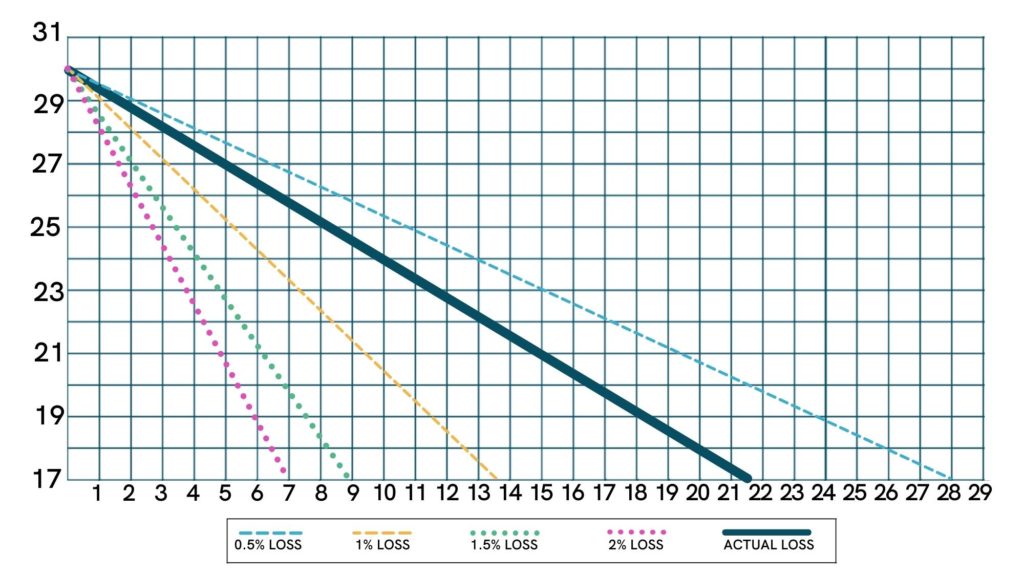
The second time that Herc lost the weight, he was definitely very, very slow. Much slower than what is “normal”. Hercules didn’t even hit the 0.5% weekly loss rate, he was really taking his sweet time with this one. When you calculate it out, Herc was losing the equivalent of 0.22% of his body weight per week. While he was still losing, the process was painfully slow this time.
Had Herc not pass from another horrible bout of pancreatitis, it would have taken him 47 months to hit his goal weight. That’s almost 4 years!
While our experience is not going to be the same as everyone else’s experience, we chose to share in such detail because it’s important for cat parents to know that there’s no right or wrong way for a cat to lose weight and no ‘normal’ timeline you should be following.
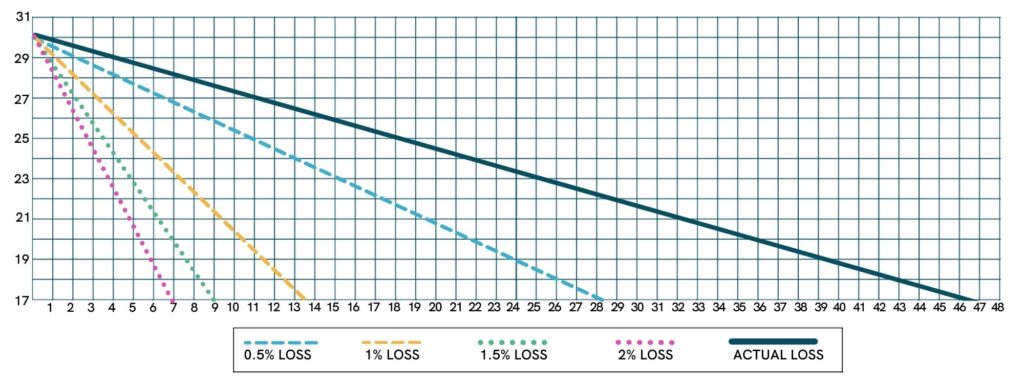
Herc never made it to that coveted 17-pound goal, but he worked so hard – literally until his very last day here on earth – at keeping to his diet. We’re proud of our big boy!
Why do some cats lose weight slower than others?
This is the million dollar question and I wish I had an answer for you! It’s a question that I’ve been desperately trying to find an answer to for many years as a means of explaining Hercules’s difficulties with his diet.
For those who are new to the cat diet world and who are at the beginning of their troubleshooting, some of the things you can consider are:
- Their weight may not be changing on the scale, but their body may be changing – are they looking slimmer? Do they have hanging skin now? Just as humans can have various fat-to-muscle ratios despite the scale remaining unchanged, cats can too.
- Is your cat getting into a source of food somewhere? Could it be others in the house (children, roomates, etc.) leaving things around for the cat to get into? Or purposefully sneaking treats?
- Are you in a multi-cat household? If so – what have you done to lock your chonky baby out of the other cats food?
If you’ve checked for everything on the above list, there’s a few other things you can consider to explain why your cat is losing weight so slowly:
- Try different combinations of wet food and kibbles. If they’ve only been eating kibble, try adding in wet food. If they are eating half-and-half kibbles to wet food, try going all wet food. Make sure to talk to your vet team before doing this to ensure you’re still providing adequate calories.
- Try a different protein source. When Herc was having a hard time, we added in 1/3 of a can of Paw Lickin’ Chicken from Weruva. It was enough to kick start his weight loss again!
- Your cat may be moving less than before; aging cats or obese cats with mobility issues will naturally move less. Consider hydrotherapy as an option (yes – this can be done at home in your bathtub!)
- Has your cat had any recent bloodwork? While hypothyroidism, Cushings Disease and acromegaly are rare – there can also be intestinal issues or underlying diabetes that is making weightloss difficult for your cat. Make sure your vet gives you an ‘all clear’ on all possible underlying conditions.
- Is your cat on any medications? Sometimes weight gain can be a side effect of medications – this can make a weightloss program harder to follow.
If you’ve considered all of the above and you’re still wondering why your cat isn’t losing weight faster – then welcome to the boat we were in with Herc!
Like is the case with humans, obesity is a complex disease and there are often multiple factors at play that can make the situation challenging to manage.
What’s most important is that you stop worrying about how fast a cat can lose weight and you start focusing on any progress – no matter how slow!
If you’re not tracking your cats weight with our feline weightloss track, sign up below and it will land in your inbox in seconds! It’s a great way to see visual confirmation that y’oure headed in the right directly, even if it’s only a few ounces at a time.
Start tracking your success
Get Instant Access to our Feline Weight Tracker
Grab our exclusive cat weight tracker printable, complete with multiple weight ranges, measurement units, and Hercule’s personal sample chart.
Send it to me
right meow!
You’re also subscribing to our mailing list. You can unsubscribe at any time.
